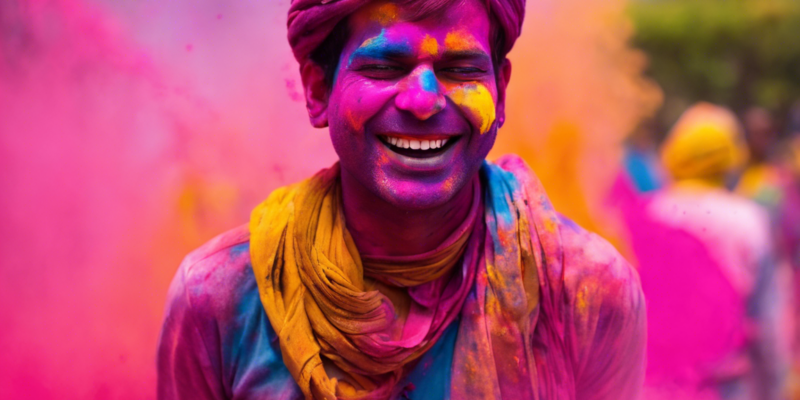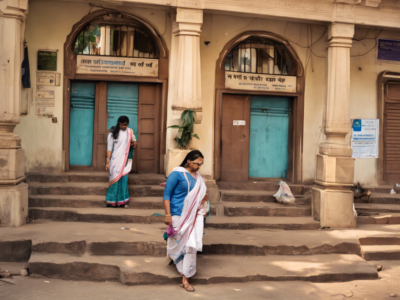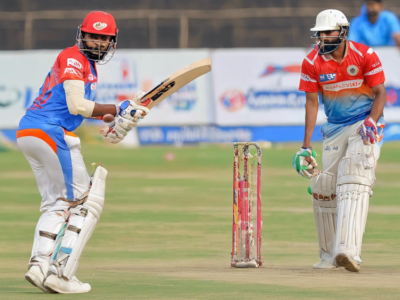When is Holi in 2024?
Holi, the vibrant Hindu festival of colors, marks the arrival of spring and the triumph of good over evil. It is celebrated with much joy and fervor across India and in many other parts of the world. Holi falls on the full moon day in the Hindu month of Phalguna, which usually corresponds to the months of February or March in the Gregorian calendar. In the year 2024, Holi will be celebrated on March 23rd.
The Significance of Holi
Holi is not just a festival of colors but also holds great religious and cultural significance. The festival signifies the victory of good over evil, with the famous story of Prahlad and Holika serving as a central theme. It also symbolizes the arrival of spring, with people embracing new beginnings and letting go of past grievances.
Preparations for Holi
Preparations for Holi start weeks in advance, with people buying colors, water guns, and various sweets. Homes and streets are decorated, and there is a sense of excitement and anticipation in the air. On the day of the festival, people gather to play with colors, sing and dance, and indulge in festive treats.
Rituals and Traditions
Holi is celebrated in various ways across different regions of India. The most common tradition is playing with colors, where people smear each other with colored powders and water. In some parts of the country, a bonfire is lit on the eve of Holi to signify the burning of Holika, representing the victory of good over evil.
Safety during Holi
While Holi is a joyous occasion, it is essential to celebrate it safely. To ensure a safe and happy Holi, here are a few precautions to keep in mind:
- Use natural and herbal colors to avoid skin allergies.
- Protect your eyes by wearing sunglasses or glasses.
- Stay hydrated and apply a layer of oil or coconut oil on your skin and hair before playing with colors for easy removal later.
- Respect others’ boundaries and do not force anyone to participate in the festivities if they are not comfortable.
Holi Beyond Colors
Apart from the traditional revelry with colors, Holi has been reimagined and celebrated in various innovative ways. In recent years, music festivals and themed parties have become popular ways of celebrating Holi, attracting people from different cultures and backgrounds.
FAQs about Holi:
1. What is the origin of Holi?
Holi has its roots in Hindu mythology, with different regions of India attributing the festival to various legends. The most famous story is that of Prahlad and Holika, showcasing the victory of good over evil.
2. Why is Holi called the festival of colors?
Holi is known as the festival of colors because of the tradition of smearing colored powders and waters on each other during the celebrations. This act symbolizes breaking barriers and spreading love and joy.
3. What are some traditional dishes prepared during Holi?
Some popular dishes made during Holi include gujiya (sweet dumplings), thandai (a spiced milk drink), puran poli (sweet flatbread), and malpua (sweet pancakes).
4. Are there any specific rituals associated with Holi apart from playing with colors?
Apart from playing with colors, some regions have other rituals like preparing a special Holi meal, visiting temples, singing traditional folk songs, and exchanging sweets with loved ones.
5. Can anyone participate in Holi celebrations, or is it limited to a specific community or religion?
Holi is a festival that welcomes people of all backgrounds and religions to come together and celebrate. It is widely celebrated across India and has gained popularity in other countries as well.
6. How long does Holi last?
Holi is typically a one-day festival, with the main celebrations happening on the day of the full moon in the month of Phalguna. However, the festive spirit can often stretch to multiple days of joyful revelry in some places.
7. How can one celebrate a eco-friendly Holi?
To celebrate an eco-friendly Holi, opt for natural and organic colors made from flowers or herbs. Avoid using water excessively and opt for dry colors instead. Inculcate sustainable practices and minimize waste generation during the celebrations.
8. Are there any specific prayers or chants associated with Holi?
Some people recite special prayers or chants dedicated to Lord Krishna or Radha during Holi. These prayers are meant to invoke blessings, prosperity, and joy for the participants.
9. How is Holi celebrated in different parts of India?
Different states and regions in India have their unique ways of celebrating Holi. For example, in Mathura and Vrindavan, the birthplace of Lord Krishna, Holi is celebrated with traditional songs, dances, and flower petals.
10. Can foreigners participate in Holi celebrations in India?
Foreigners are often welcome to join in the Holi celebrations in India. It is advisable to respect the customs and traditions of the festival, dress modestly, and participate in the festivities with an open heart to truly experience the spirit of Holi.
Holi is a festival that transcends boundaries and brings people together in a colorful celebration of unity, love, and joy. Whether you choose to partake in the traditional rituals or embrace the modern interpretations of the festival, Holi is a time to spread happiness and create lasting memories with friends and family.









